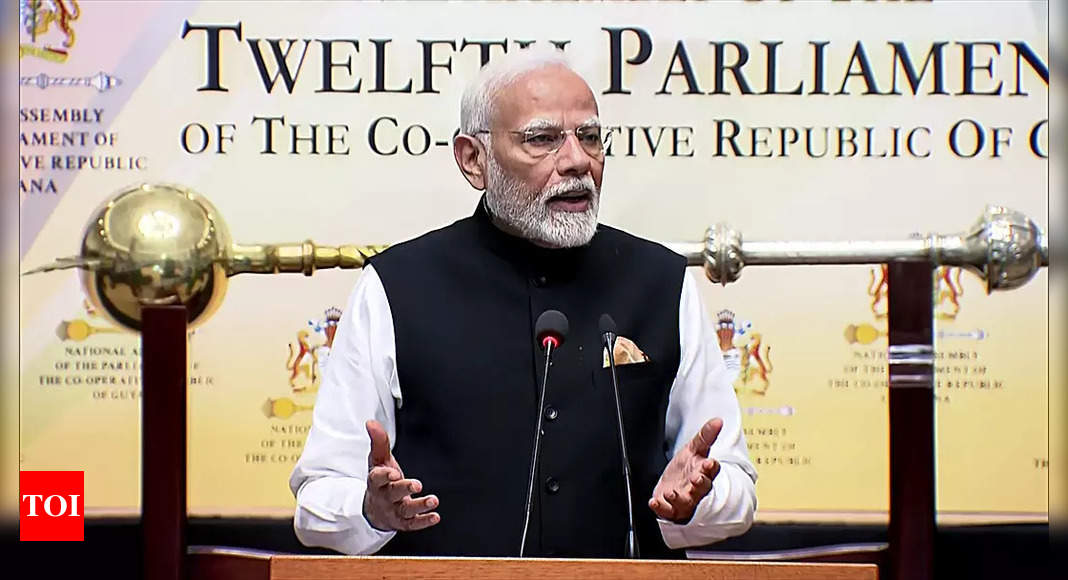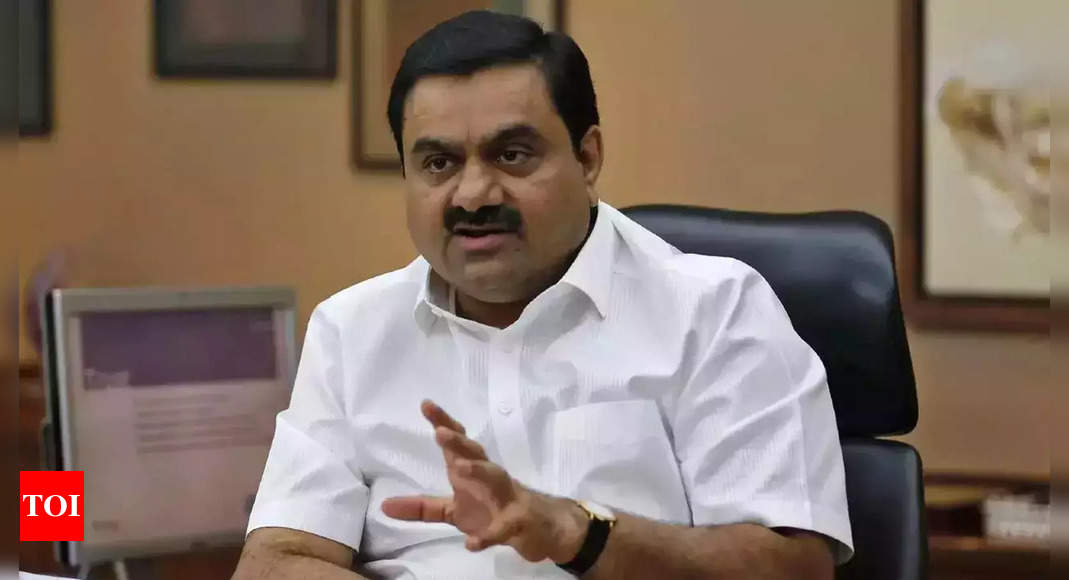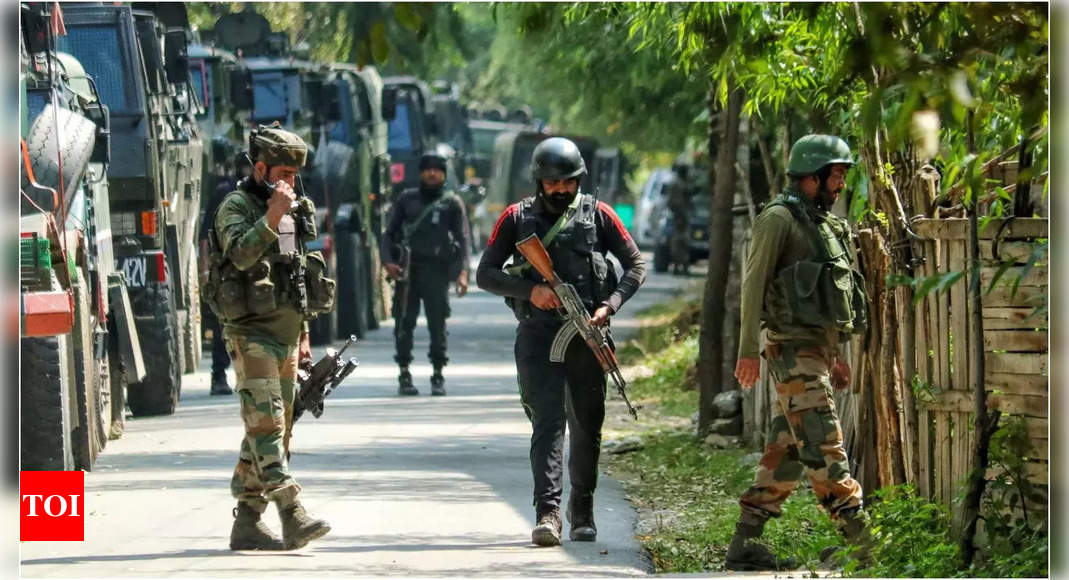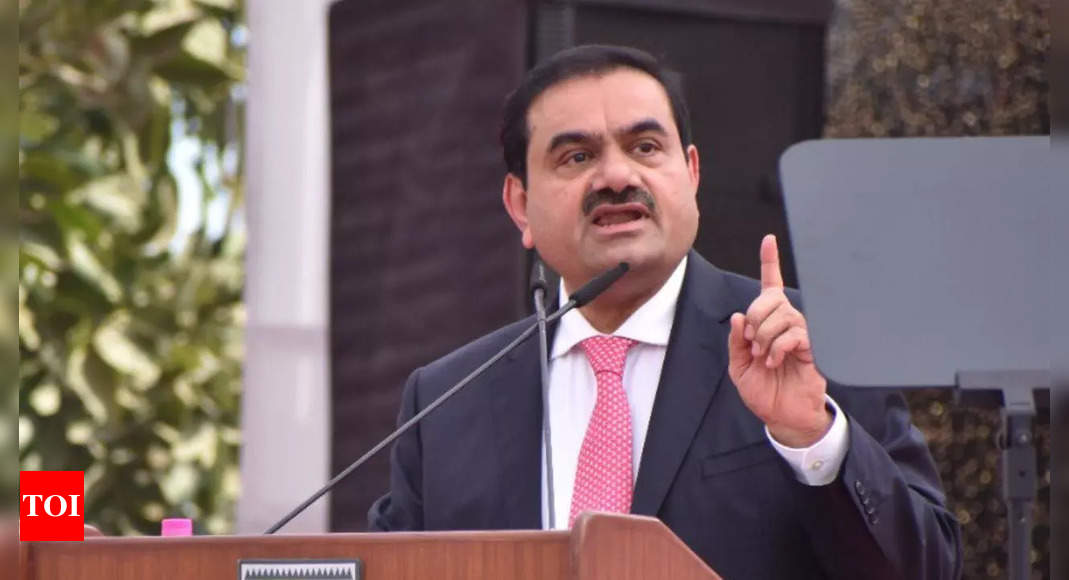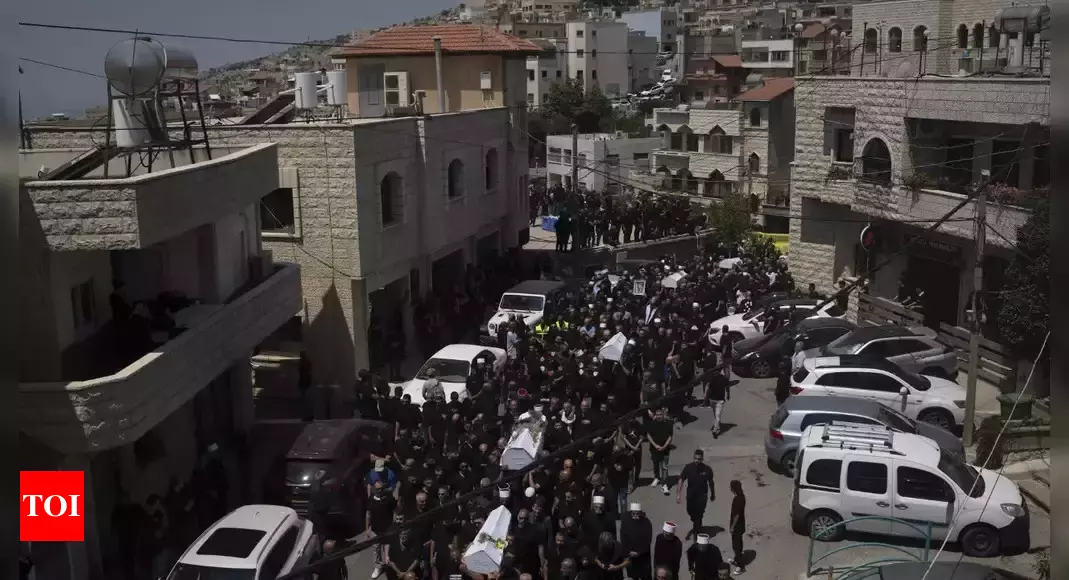
Violence in the Middle East may increase after a rocket from Lebanon hit a soccer field in the Israeli-controlled Golan Heights, killing 12 children and teenagers. This deadly incident, described by the military as the most severe attack on civilians since 7 October, has heightened fears of a regional war between Israel and Hezbollah. In a rare move, Hezbollah denied responsibility, as per AP.
Tragic incident
The tragic event unfolded on Saturday when a rocket hit a soccer field in the Druze town of Majdal Shams, about 12 kilometres south of Lebanon and near the Syrian border. Dozens of children and teens were playing when the rocket struck, resulting in 12 fatalities and 20 injuries. An 11-year-old was reported missing.
“I feel darkness inside and out. Nothing like this happened here,” resident Anan Abu Saleh lamented. “There’s no way to explain this. I saw children, I don’t want to say what I saw, but it’s horrible, really horrible. We need more security.” Thousands gathered on Sunday to mourn as coffins were carried through the crowd.
The Druze community
The Druze, a religious sect originating as an offshoot of Shiite Islam, have communities in Israel, Syria, and Lebanon. There are about 25,000 Druze in the Israeli-controlled Golan Heights, according to Yusri Hazran of the Hebrew University. While the Druze are generally considered among Israel’s most loyal citizens, those in the Golan Heights have a more complex relationship with Israeli authorities. Israel captured the Golan, a strategic plateau, from Syria in the 1967 Mideast war and annexed it in 1981, a move not widely recognised internationally.
“Big anger, big, big. I have no feelings that I can explain to you,” said Majdal Shams resident Hassan Shakir, according to AP.
Broader war concerns
The attack on the soccer field could prompt a stronger response from Israel, raising the risk of a broader war. Israeli Prime Minister Benjamin Netanyahu, who rushed back from the United States, warned that Hezbollah “will pay a heavy price for this attack, one that it has not paid so far.” US Secretary of State Antony Blinken indicated that evidence pointed to Hezbollah’s involvement, with the Israeli military identifying the rocket as a Falaq rocket with a 53-kilogram warhead belonging to Hezbollah.
Since the conflict in Gaza began, attacks along the Israel-Lebanon border have been intense but contained. However, the toll and young victims in this attack might escalate Israeli actions. Hezbollah, with its superior firepower compared to Hamas, could significantly strain Israel’s military, which is already engaged in Gaza.
Regional reactions
In Lebanon, preparations for potential Israeli retaliation were underway. The national airline postponed the arrival of seven flights in Beirut until Monday morning. Caretaker Prime Minister Najib Mikati held urgent discussions with diplomats and politicians.
“I doubt that there will be a strike, but nothing is far-fetched when it comes to the enemy,” said Abdallah Dalal, a resident of the Lebanese border village of Chebaa, near where the rocket was fired, according to AP.
Iran, a significant player in the region, warned Israel that a strong reaction could lead to “unprecedented consequences.” Iran’s involvement in the conflict became evident in April when it launched 300 missiles and drones at Israel, most of which were intercepted, following the killing of an Iranian general.
Impact on Gaza War
Efforts to negotiate a ceasefire in Gaza continue, with officials from the United States, Egypt, and Qatar meeting with Israeli officials in Rome. The head of Israel’s Mossad spy agency, David Barnea, returned home for ongoing negotiations.
An Egyptian official noted that the attack in the Golan Heights could add urgency to the ceasefire discussions. “Both fronts are connected,” he said. “A cease-fire in Gaza will lead to a cease-fire with Hezbollah.” The Egyptian foreign ministry called for international intervention to prevent further escalation.
Diplomatic efforts for peace
The White House national security council announced ongoing discussions with Israeli and Lebanese counterparts, aiming for a diplomatic resolution to “end all attacks once and for all” in the volatile border area. Meanwhile, the Israeli military responded by striking several targets in Lebanon overnight into Sunday. Although these attacks mirrored the intensity of previous cross-border skirmishes with the Iranian-backed Hezbollah, there were no immediate reports of casualties.
Tragic incident
The tragic event unfolded on Saturday when a rocket hit a soccer field in the Druze town of Majdal Shams, about 12 kilometres south of Lebanon and near the Syrian border. Dozens of children and teens were playing when the rocket struck, resulting in 12 fatalities and 20 injuries. An 11-year-old was reported missing.
“I feel darkness inside and out. Nothing like this happened here,” resident Anan Abu Saleh lamented. “There’s no way to explain this. I saw children, I don’t want to say what I saw, but it’s horrible, really horrible. We need more security.” Thousands gathered on Sunday to mourn as coffins were carried through the crowd.
The Druze community
The Druze, a religious sect originating as an offshoot of Shiite Islam, have communities in Israel, Syria, and Lebanon. There are about 25,000 Druze in the Israeli-controlled Golan Heights, according to Yusri Hazran of the Hebrew University. While the Druze are generally considered among Israel’s most loyal citizens, those in the Golan Heights have a more complex relationship with Israeli authorities. Israel captured the Golan, a strategic plateau, from Syria in the 1967 Mideast war and annexed it in 1981, a move not widely recognised internationally.
“Big anger, big, big. I have no feelings that I can explain to you,” said Majdal Shams resident Hassan Shakir, according to AP.
Broader war concerns
The attack on the soccer field could prompt a stronger response from Israel, raising the risk of a broader war. Israeli Prime Minister Benjamin Netanyahu, who rushed back from the United States, warned that Hezbollah “will pay a heavy price for this attack, one that it has not paid so far.” US Secretary of State Antony Blinken indicated that evidence pointed to Hezbollah’s involvement, with the Israeli military identifying the rocket as a Falaq rocket with a 53-kilogram warhead belonging to Hezbollah.
Since the conflict in Gaza began, attacks along the Israel-Lebanon border have been intense but contained. However, the toll and young victims in this attack might escalate Israeli actions. Hezbollah, with its superior firepower compared to Hamas, could significantly strain Israel’s military, which is already engaged in Gaza.
Regional reactions
In Lebanon, preparations for potential Israeli retaliation were underway. The national airline postponed the arrival of seven flights in Beirut until Monday morning. Caretaker Prime Minister Najib Mikati held urgent discussions with diplomats and politicians.
“I doubt that there will be a strike, but nothing is far-fetched when it comes to the enemy,” said Abdallah Dalal, a resident of the Lebanese border village of Chebaa, near where the rocket was fired, according to AP.
Iran, a significant player in the region, warned Israel that a strong reaction could lead to “unprecedented consequences.” Iran’s involvement in the conflict became evident in April when it launched 300 missiles and drones at Israel, most of which were intercepted, following the killing of an Iranian general.
Impact on Gaza War
Efforts to negotiate a ceasefire in Gaza continue, with officials from the United States, Egypt, and Qatar meeting with Israeli officials in Rome. The head of Israel’s Mossad spy agency, David Barnea, returned home for ongoing negotiations.
An Egyptian official noted that the attack in the Golan Heights could add urgency to the ceasefire discussions. “Both fronts are connected,” he said. “A cease-fire in Gaza will lead to a cease-fire with Hezbollah.” The Egyptian foreign ministry called for international intervention to prevent further escalation.
Diplomatic efforts for peace
The White House national security council announced ongoing discussions with Israeli and Lebanese counterparts, aiming for a diplomatic resolution to “end all attacks once and for all” in the volatile border area. Meanwhile, the Israeli military responded by striking several targets in Lebanon overnight into Sunday. Although these attacks mirrored the intensity of previous cross-border skirmishes with the Iranian-backed Hezbollah, there were no immediate reports of casualties.




